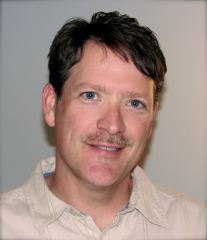Martin Luther King, Jr.’s “I Have a Dream” speech might be the finest piece of American oratory from the 20th century. And it almost never came to be. As King took the podium at the Lincoln
Memorial that August day in 1963, advisors told him not to use his “dream” rhetoric as it was considered trite.
But as he began to conclude his remarks, the illustrious Mahalia Jackson who was sitting on the stage, began to implore him. “You tell ‘em about the dream, Martin,” she said. So he did. Speaking extemporaneously and impulsively he conjured up the soaring magnificence we know so well:
“Even though we face the difficulties of today and tomorrow, I still have a dream … I have a dream that one day this nation will rise up and live out the true meaning of its creed: ‘We hold these truths to be self-evident: that all men are created equal.’ I have a dream that my four little children will one day live in a nation where they will not be judged by the color of their skin but by the content of their character.’
“I have a dream that one day every valley shall be exalted, every hill and mountain shall be made low, the rough places will be made plain, and the crooked places will be made straight, and the glory of the Lord shall be revealed!”
Martin Luther King’s “dream” was not the American Dream, though he was an American. His was more than a civil rights dream, though he was a black man who worked tirelessly for racial equality. His was a dream rooted in the gospel. His dream of impartiality, brotherhood, and liberty was rooted in God’s justice.
When King got to the crescendo of his speech, he wasn’t spewing talking points; he was quoting the prophet Isaiah. This was Scripture’s dream for humanity. This was a centuries-old prayer that the world would be divinely restored. This was biblical faith in a better future. This was the dream for God’s righteousness to fill the earth. MLK’s dream was a dream aligned with the dream of God.
Thus, King was doing more than marching for more jobs; more than ending desegregation; more than stopping nighttime lynchings, the firebombing of churches, and the intimidation of civil rights workers. He was prophetically living out the dream of God in real time in the real world, exhorting all of us to dream and work for the same.
Make no mistake, this kind of dreaming – trusting God enough to realign our dreams with his — isn’t accomplished by sleeping. This kind of dreaming requires action. It requires participation. We must join God where he is at work in the world, in every place that requires justice, peace, fairness, and love.
This kind of active dreaming will certainly cost us our comfort and may cost some their lives. But as Dr. King showed us, dreamers will die, but their God-inspired dreams will forever live on.
Ronnie McBrayer is a syndicated columnist, blogger, pastor, and author of multiple books. Visit his website at www.ronniemcbrayer.net.


